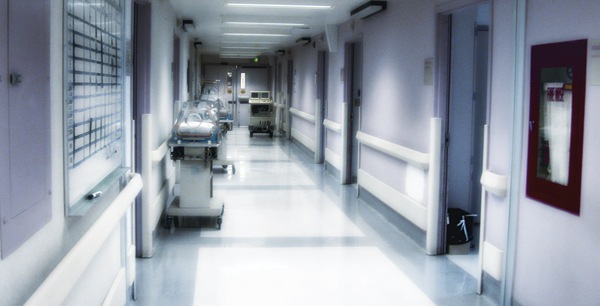Policy check-up
Health affects everyone in society and has been a major political topic since devolution returned. agendaNi summarises the main parties’ commitments from their Assembly, European and Westminster manifestos. Health is devolved except for some sensitive ethical matters e.g. genetics.
UUP
Minister: Michael McGimpsey MLA
Spokesman: John McCallister MLA
The UUP claims credit for bringing the NHS to Northern Ireland in 1948 and took on the portfolio in May 2007. Its Assembly manifesto pledged a move towards free comprehensive eye examinations, free prescriptions, and an extension of the NHS Direct helpline to the province.
New nurses would be guaranteed one year’s employment. Other priorities included investment in dentistry and targeted prevention programmes for diabetes, strokes and cardiovascular disease. A law to protect health staff from assault and abuse would be brought forward, and the Appleby and Bamford reports implemented.
In 2010, Conservatives and Unionists pledged year-on-year increases in health spending, more single hospital rooms and a new NHS dentistry contract.
DUP
Assembly Spokesman: Jim Wells MLA
Westminster Spokesman: Jim Shannon MP
The Appleby report’s finding that Northern Ireland’s Health Service had suffered from long-term under funding was affirmed by the DUP in 2007. Reduced bureaucracy was a particular priority. The party wanted the Health Service to focus on health promotion, early intervention and preventing illness at a community level. More action was needed to tackle suicide.
Enhanced intermediate and community care would allow much earlier discharges from hospital. National Institute of Clinical Excellence guidelines would be extended to Northern Ireland.
In its European manifesto, the DUP called for a ban on human cloning and opposed embryonic stem cell research.
Free personal care, based on medical need, was supported and further financial savings could be made in generic drug prescriptions.
The party criticised the Public Health Agency in its general election campaign, as “vast numbers of staff” were “doing exactly the same jobs within a re-titled organization”.
The detailed Westminster manifesto pledged support for a prostrate cancer screening programme, minimum pricing for alcohol, outlawing smoking in cars with children, and presumed consent for organ donation.
Computerised cognitive behaviour therapy could save nearly £10 million.
Northern Ireland trusts would also benchmark their performance on cancer with those in Great Britain. Patients should receive psychological therapy in two weeks.
A self-referral pilot for physiotherapy was also proposed.
Sinn Féin
Assembly Spokeswoman: Michelle O’Neill MLA
Oireachtas Spokesman: Caoimhghín Ó Caoláin TD
Full implementation of the Investing for Health strategy was pledged in Sinn Féin’s Assembly manifesto The Bamford report and suicide prevention strategy would also be fully implemented.
Primary care would be brought to the centre of the system. Free prescriptions and a minimum purchase
price of 18 for tobacco were supported. Sinn Féin also proposed a rural health task force and backed cross-border health services. Waiting lists were to be dramatically reduced or even eliminated.
Health services should remain under national control, its European manifesto said, although it is unclear whether there were any plans to undo that.
The party’s overall vision is a “seamless all-Ireland health service”, it said in 2010. The Public Health Agency should also “tackle social inequalities earlier and more effectively.” Sinn Féin held the health brief from 1999 to 2002.
Alliance
Spokesman: Kieran McCarthy MLA
Health funding must be brought up to the EU levels within five years, Alliance stated in 2007. The party also called for regional specialist centres e.g. for cancer treatment, and emphasised the benefits of cross-border co-operation.
A lengthy priority list was drawn up, including free personal care for residential and nursing home residents, increasing the tobacco purchase age from 16 to 18, reducing the drink drive level from 80mg to 50mg. The party warned of an “over- reliance on costly agency staff” and sought adequate numbers of occupational therapists and physiotherapists. Eye and dental check-up charges would be abolished.
In 2009, candidate Ian Parsley suggested Northern Ireland could be a European centre for cardiac research and micro-surgery. In 2010, Alliance re-emphasised the gaps in mental health services and social care for senior citizens.
Green Northern
Spokesman: Brian Wilson MLA
Oireachtas Spokesman: Senator Niall Ó Brolcháin
A ‘green’ health service would focus on community care, the party’s Assembly plans stated. Greens called for a health ombudsman office to investigate disputes over healthcare provision and environmental health risks. The pharmaceutical industry also needed more accountability.
Flouridation of water would be stopped. The party also saw a need for new disability legislation, based on needs and rights, the expansion of domiciliary services and the extension of the hospice movement. In 2010, it called for an end to the “business-centric culture” in hospitals.
SDLP
Assembly Spokesman: Tommy Gallagher MLA
Westminster Spokesman: Dr Alasdair McDonnell MP MLA
The SDLP’s detailed Assembly manifesto contained a long list of health priorities. Specific commitments included bringing back outsourced hygiene and cleaning services under hospital management, widening access to NHS dentistry, full funding for the Bamford report and suicide prevention strategy.
Strategies would be drawn up on autism, Alzheimer’s disease, arthritis, multiple schlerosis and protecting health workers from attack. An all- Ireland forum on mental health was also proposed. Carers were encouraged to look after their own health as well; suitable respite care would be provided.
The 2009 manifesto linked public health with environmental policy and called for ‘health impact assessments’ for all policies. Its 2010 successor prioritised all-island services rather than flying patients to England, an eating disorder unit, obesity prevention strategy and a new preventative health fund.
PUP
The continued development of private medicine was “detrimental” to providing adequate secondary care for all, the PUP said in 2007. Public- private partnerships were opposed. The party was keen on community- based health work and supported primary care development. It currently has no MLAs.






